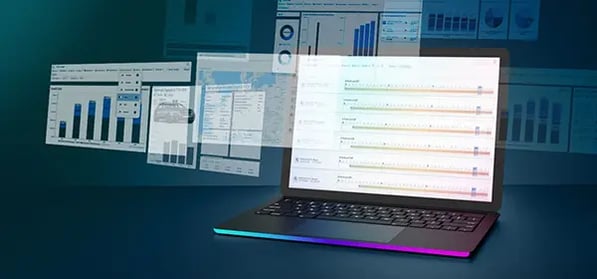3 min read
08: Avoiding loss-making projects: How automotive suppliers stay profitable with a system
 Erik Reiter
:
May 16, 2025
Erik Reiter
:
May 16, 2025
Price pressure is enormous in the automotive supply industry. This makes it all the more alarming that individual loss-making projects can be enough to jeopardize the earnings of an entire company. And the worst thing about it: many of these projects are already recognizable as loss-making in the award phase - they are acquired anyway.
How do such decisions come about? And above all: how can loss-making projects be systematically avoided? The answers lie in a structured, digital sales process - as made possible by the Digital Automotive platform.
The actual cause: Mistakes in the RfQ process
The majority of loss-making projects do not occur in series production, but rather during the acquisition process. To be more precise: during the quotation calculation.
Typical causes are
-
Non-transparent or incorrect calculations
-
Incorrect pricing assumptions
-
Poor coordination between sales, costing and project management
-
Lack of control and approval processes
The result: projects that generate sales but cost money in the long term - and therefore block valuable resources, tie up capacity and impact the operating result.
The consequences are serious
A single loss-making project can
-
"overlap" several profitable projects
-
jeopardize strategically important customer relationships
-
undermine the trust of management and shareholders
Particularly dramatic: the actual loss often remains invisible for a long time because the causes can no longer be traced in the early phase. In many companies, the classic RfQ process is not systematically documented - and therefore not verifiable.
The solution: a digitally managed acquisition process
Lost projects are not destiny - they are the result of a lack of transparency and error-prone processes. These risks can be significantly reduced with a consistently digitalized quotation process.
A modern sales framework, such as the one offered by Digital Automotive, comprises four central levers:
1. Creating transparency throughout the entire acquisition process
All relevant information - from the initial customer inquiry to the final calculation - must be digitally documented and accessible. This is the only way to identify deviations, understand decisions and evaluate offers on a sound basis.
Digital platforms enable end-to-end RfQ transparency here:
-
Complete documentation of customer requirements
-
Version history of calculations
-
Central data storage for all departments involved
2. Systematically establish the 4-eyes principle
One of the most effective measures against errors is the classic dual control principle - not as an informal process, however, but as a bindingly documented and system-supported one.
In concrete terms, this means
-
Every assumption relevant to costing is checked and approved
-
All decisive steps (e.g. price approvals, technical assessments) are digitally signed off
-
Decisions are traceable and audit-proof
This not only improves the quality of quotations, but also protects the sales department from "going it alone" or making assumptions without a sound basis.
3. System-side safeguarding of the calculation basis
Incorrect calculation factors - such as raw material prices, machine costs or exchange rates - are a common reason for incorrect quotations. To prevent this, these factors must be centrally maintained and systemically validated.
In practice, this means
-
Use of valid, centrally stored values for all quotations
-
Automatic plausibility checks and warnings in the event of deviations
-
Seamless transfer of the approved values to the CBDs (Customer Business Documents)
This ensures consistency between sales data and series implementation - a decisive lever for profitability.
4. Standardized quotation approval with digital signature
At the end of the process is the final quotation approval - and this must also be structured, traceable and controlled. A digital offer approval with an electronic signature from all relevant stakeholders ensures this:
-
Binding nature
-
Clarity about responsibilities
-
Traceability for subsequent reviews or audits
Only if this final instance functions reliably can risks be identified before the contract is awarded and losses avoided.
Digital Automotive: the solution for loss-free growth
The mechanisms described above are fully integrated into the Digital Automotive platform. As the leading solution for Strategic Sales Planning & Sales Management in the supplier industry, it offers
-
A complete digitalization of the RfQ process
-
Standardized workflows with 4-eyes principle
-
Central calculation factors with system validation
-
Digital approvals with signature function
-
Seamless documentation of all quotation decisions
This not only makes sales more efficient, but above all strategically controllable and economically secure.
Conclusion: control creates profit
Loss-making projects do not occur in series production, but during the awarding process - and are avoidable. What is needed is systemic control, digital transparency and clear responsibilities. Only then can sales become a profitable growth driver.
With a platform like Digital Automotive, this is exactly what can be achieved. It turns quotation preparation into a strategic, fact-based process - and ensures that your company not only grows, but also earns.
17: RfQs in Excel? Why the risk for suppliers is enormous
23: Compliant Sales Processes: How Automotive Suppliers Score with Security, Transparency, and Profitability
In the dynamic and demanding world of automotive suppliers, it is no longer just the quality of the product that determines success - the processes...




